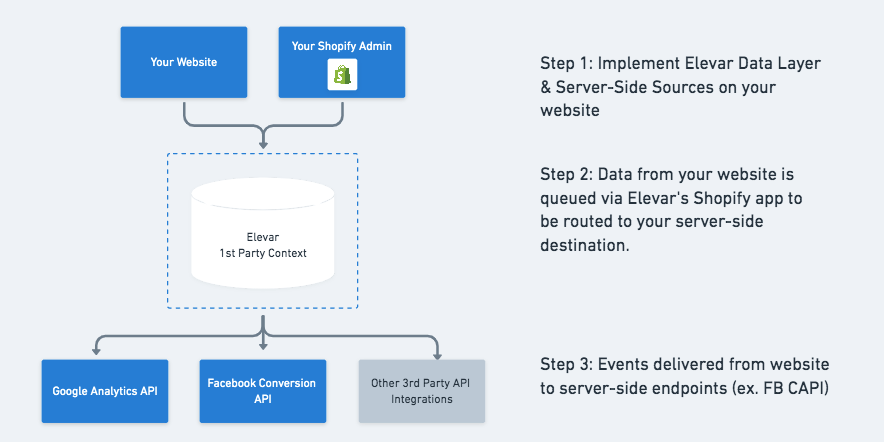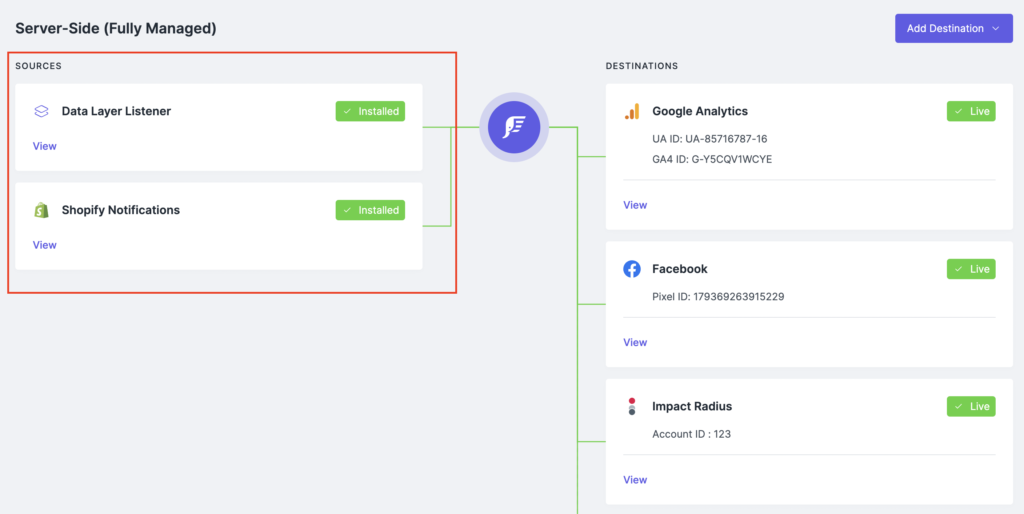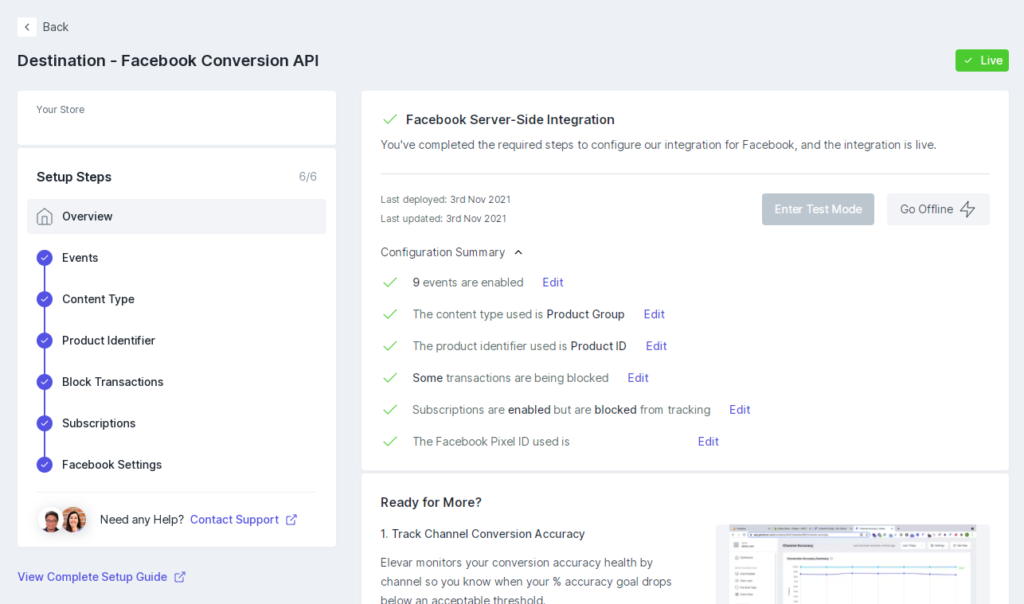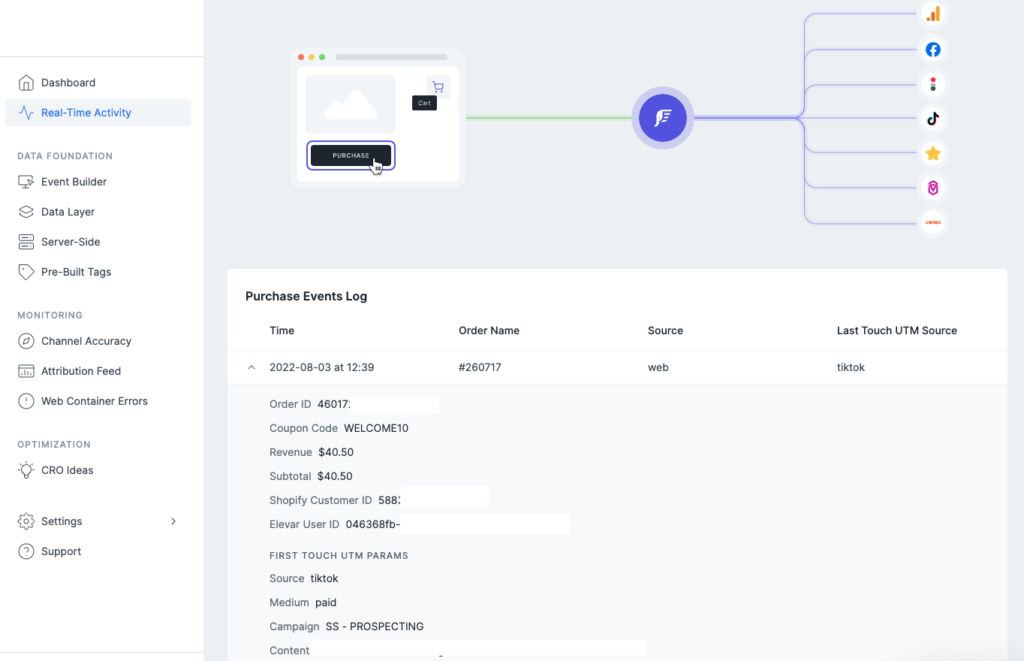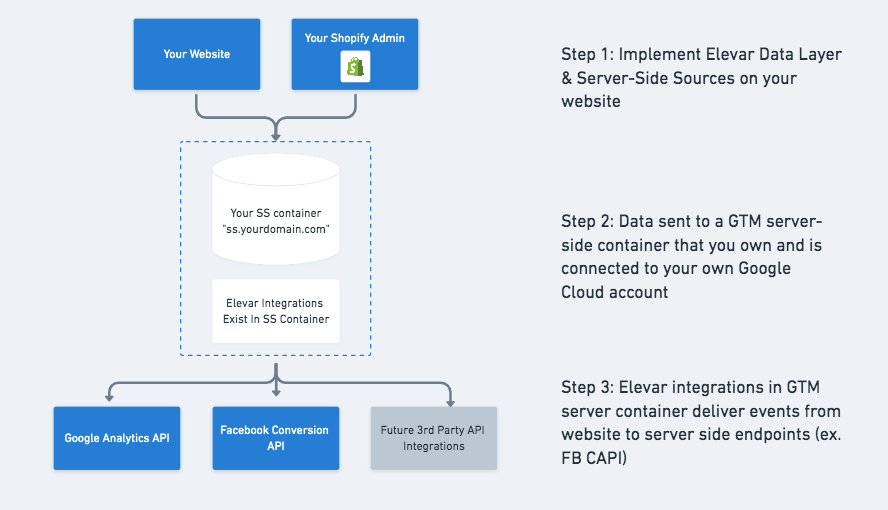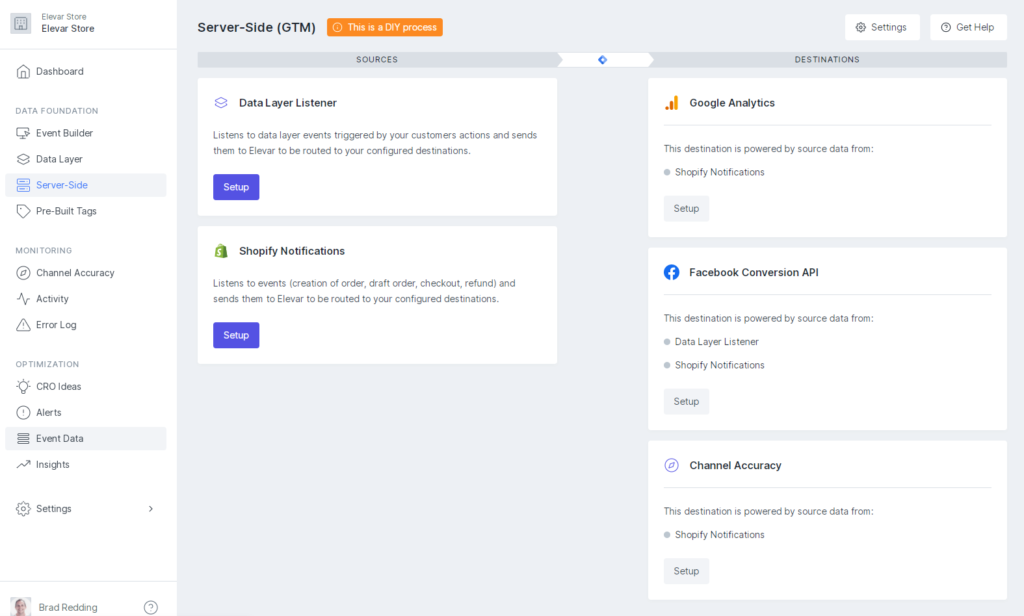As of Q3 2022 Shopify currently has channels that manage pixel installation and server-side conversion tracking for:
Facebook
This has the option to enable Maximum Data Sharing which enables the Facebook Conversion API for server-side tracking. This will share orders for users that hit your thank you page (or if you use post-purchase upsells, it will send the order on the post purchase upsell page as well).
If you need to send orders from other channels — like Subscription orders, international orders (ex. Global-E, Flow, etc), or other channels then these orders will not be sent to Facebook with this native integration.
TikTok
TikTok Events API works very similar to Facebook as described above.
Other channels or apps such as Snapchat, Google Ads, Google Analytics, and Microsoft do not have serve-side tracking built-in.
Occasionally you will find other apps built and maintained by the marketing channel (see Commission Junction as an example). However the majority of the time these are client-side tracking only and are not maintained with the velocity of Shopify changes.
For example — in the CJ app listing linked above, there is no mention of the Post-Purchase upsell tracking. So if you are using a post purchase upsell app like Rebuy or Zipify then you will be missing a significant number of conversions for users that never hit your thank you page.
